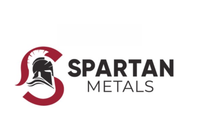Maxtech Ventures CEO: Advancing Towards Small-scale Manganese Production

Maxtech Ventures’ goal is to become a small-scale manganese producer as it explores its Brazil asset and identifies opportunities in Zambia.
According to Maxtech Ventures CEO Peter Wilson (CSE:MVT,FWB:M1N,OTCMKTS:MTHEF), the manganese price point is climbing as it is a vital component of the batteries found in cellphones, electric vehicles and mass-storage devices.
Facing this positive market trend, Maxtech is moving towards near-term, small-scale production as it continues exploring its Brazilian property in the country’s Mato Grosso region.
In the interview below, Wilson describes the company’s progress in Brazil and also highlights Maxtech’s recent venture into Zambia, where it is identifying high-grade, prospective assets on which to work. To this effect, the company has also announced that it will be opening a Zambian subsidiary.
Below is a transcript of our interview with Maxtech Ventures CEO Peter Wilson. It has been edited for clarity and brevity.
Investing News Network: Please give our investor audience an overview of Maxtech and its manganese projects across Brazil and Africa.
Maxtech Ventures CEO Peter Wilson: Maxtech is engaged in the exploration and research of high-grade manganese deposits in both Brazil and in Zambia. Our mandate is to bring our high-grade assets to immediate small-scale production. Once we are in production, we can supply our local partners as well as export markets across the manganese spectrum. Manganese can be used for the creation of ferroalloys, in agriculture and, more recently, in batteries in cellphones, electric vehicles and mass-storage devices.
INN: Please tell us about the exploration activities you have conducted on the Mato Grosso projects to date. Are there any findings you would like to highlight?
PW: Maxtech has commissioned a regional geological assessment for the Mato Grosso property in Brazil, and has conducted sample work across the property as well. Assay results from this work range from 50 to 56 percent manganese. Anything above 44 percent manganese is considered to be high grade and can be sold sometimes at a 30-percent premium to the spot market price.
As we continue exploring our asset, we are working towards putting it into near-term, small-scale production. We have commenced the application for this process, which will allow the company to produce and sell a bulk sample, and then reinvest it into further exploration on the property. Once we have a further understanding of the scope of the resource, we can move to full-scale production.
INN: Please explain the significance of Maxtech’s recent announcement that it will be forming a new subsidiary in Zambia.
PW: Our decision to enter Zambia was particularly driven by the high-grade nature of the manganese deposits in the region. The second influencer was that Zambia is a favorable mining jurisdiction, which enables us to rapidly establish our presence as a manganese exploration company there.
We are wasting no time in sending geologists to identify and survey potential assets to determine how geologically prospective they are for manganese. We have seen some prospective potential already, and our next step is to open our in-country subsidiary so that any applications to the government can be in our own name.
INN: What is next for Maxtech and how does that fit into the company’s long-term plans?
PW: In Brazil we will be building on what we have acquired and moving towards small-scale production with an offtake partner.
With regards to Zambia, we are looking to enter into additional strategic relationships and to acquire assets or enter into joint ventures. We will also get started on our permit applications.
While we are currently a pure-play manganese company, we are also staying aware of the opportunities in other battery materials such as vanadium and lithium. Some of the samples in our assets might show considerable showings of these other materials, so there might be an opportunity for vertical integration as we move towards being a small-scale producer.
INN: What is the state of the manganese market currently?
PW: Manganese is climbing in price point, trading at almost US$7 per tonne. As well, there is increased demand from battery storage devices.
While few people know much about manganese — it is often confused with magnesium — it is arguable that it deserves as much attention as other battery metals, including lithium and cobalt.
INN: Savvy investors know strong management is key to a company’s success. Are there any executives you would like to highlight on your board and management team?
PW: I would like to highlight Meris Kott, our president of commercial. She handles the in-country relationships, the assets and leads the oversight of local managers. She is the company’s right arm and manages our expectations and objectives strategically.
We are looking to further develop our executive team with potential additions. They will come in and help drive our mandate and guide us towards near-term production.
CEO interviews are part of investor education campaigns for clients advertising on the Investing News Network. Important news is contextualized by CEOs, and the resulting interviews are disseminated to the Investing News Network audience because they have value to market watchers.
The Investing News Network interviews a CEO for an understanding of their perspective on the company, the investment potential of the company and market news related to the company. The information contained here is for information purposes only and is not to be construed as an offer or solicitation for the sale or purchase of securities.
